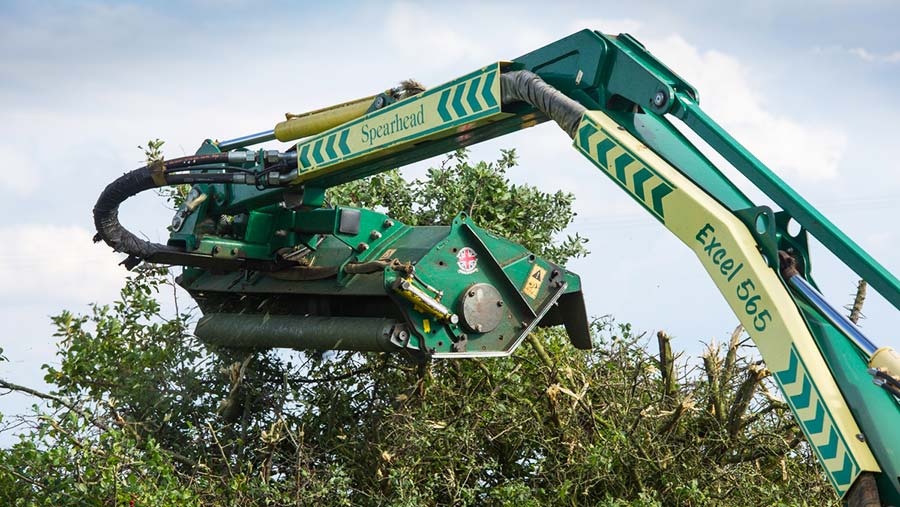Hedgecutting ban: Leadsom asked to change dates
 ©Tim Scrivener
©Tim Scrivener New Defra secretary Andrea Leadsom is being urged to ease the hedgecutting ban and allow hedges on arable land to be trimmed in the month of August.
The government extended the rules around hedgecutting to protect nesting birds in 2015 to stretch to six calendar months from 1 March to 1 September.
However, the ban has caused serious land management difficulties for farmers and contractors because without a derogation they can no longer follow the combines around and trim hedges on arable land immediately after harvesting.
See also: Hedgecutting ban costs contractors thousands in lost income
In wetter seasons, the ground can become too soft for tractors to travel on, leaving contractors with not enough days to get through the wetter fields.
The NFU continues to dispute the science around the hedgecutting ban, arguing that any bird still in the nest then will not make it through the winter.
NFU vice-president Guy Smith said: “We consistently have and we continue to question the science behind the August hedgecutting ban.
“We do not accept significant bird species are being disturbed [in nests] and we continue to call on Defra to reconsider the ban.
“The government must give farmers and contractors the opportunity to trim hedges at a time when it is convenient for them.”
Lost income
Northamptonshire-based Bob Rutt is one of many hedgecutting contractors across the UK who faces four weeks of hardly any work – because he cannot get on the land to trim hedges in August, traditionally one of his busiest periods.
He is hopeful that now the country has voted for Brexit the ban could soon be overturned, as Defra said the rules to protect nesting birds were introduced “as part of EU legislation”.
“If I didn’t have the small amount of local authority hedgecutting work and grasscutting this August, I would be sunk,” Mr Rutt told Farmers Weekly.
“I lost out last year on hedgecutting to the tune of thousands of pounds by not being able to start until 1 September.
“We were cutting grassland in August and when we did make a start after 1 September it started to rain.”
According to Mr Rutt, the legacy of the August hedgecutting ban left “acres and acres of farmland fallow” that will likely go into oilseed rape this autumn.
However, farmers and landowners who have not applied for a derogation and traditionally drill their OSR in early or mid-August will be made to wait until 1 September to trim hedges on arable land.
“We are one month down on our income and will be until Defra changes the rules,” added Mr Rutt.
“I would urge the new Defra secretary Andrea Leadsom to look at the science behind the decision to ban hedgecutting in August.
“All the visiting birds to these shores are on their way back to Africa by then.”
Tom Pursglove, MP for Corby and East Northampstonshire, is expected to write to Mrs Leadsom in the next few days to question the cutting ban in August and highlight the cost to the rural economy.
‘Red-listed’ birds
The RSPB maintains the ban must remain in place, insisting a number of birds, including a few red-listed species such as yellowhammer and turtle dove, are still nesting in August.
Earlier this year, Defra said it had no plans to change the hedgecutting dates for this season. But it said derogations would be made available to farmers and contractors to cut hedges around land intended for sowing oilseed rape or temporary grass.
For this season, however, it is too late for farmers and landowners to apply for a derogation, as applications normally take about six weeks to process.
The rules on cutting hedges and trees are set out in the cross-compliance standard GAEC 7a: Boundaries.
